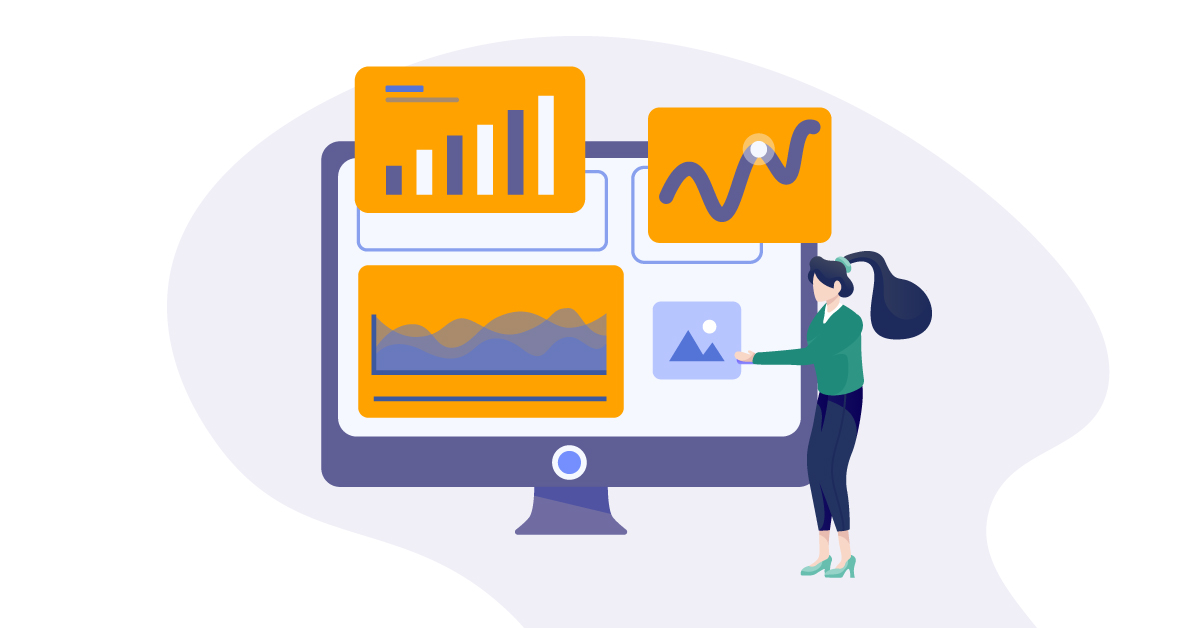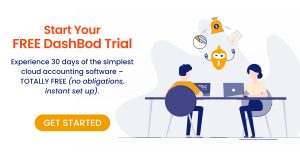Technology is understandably daunting, so implementing it can be a bit of a challenge.
If you’re still waiting to jump on the cloud computing train, don’t worry, you’re not alone. Many small businesses are still using time-consuming, ineffective methods to manage their finances.
Benjamin had over 15 years of accounting experience but accounting requirements were getting a lot more complicated than they were just a few years ago.
“It’s definitely a lot more stressful for me and my team. For so long, paper-filled desks were normal and I refused to digitize things with Excel Spreadsheets. Then I realized, if I want my team to have the same productivity and accuracy, I have to equip them.”
Besides, 35% of self-employed contractors say making mistakes when doing their accounts is the most stressful thing. Other worries include how long it takes to complete (15%), the complexity of the process (13%), and being slapped with financial penalties (5%), according to a study by SJD Accountancy.
Sure, spreadsheets can still help. But that isn’t exactly a system, so you won’t have the in-depth insights an accounting software can give you. And that’s the difference between a great accountant and a regular finance guy.
Traditional vs modern accounting
“We’re entering the digital revolution. There’s no way to fight it. You either adapt of you die a slow and painful death. I decided that I wanted to live,” Benjamin recounts.
One of the biggest downsides to relying solely on spreadsheets is you go back and forth checking formulas in individual cells. Connect the wrong cell and your numbers are all wrong.
The errors, the data loss, the amount of time spent trying to rectify that one mistake among hundreds of sheets…
Especially when the accounts get bigger, the formulas stack on one another.
It’s a row of formulas that you can’t even see in the text bar. Just “$” signs, coloured letters, brackets, conditional formatting and all that.
“I’m not sure about others, but where I work, I want to spend time doing things that actually make a difference. And so does my team. With cloud computing, we see things clearly and we can recommend actions better. Our company’s doing better than before and morale is definitely up. I think that’s really important.”
Benefits of cloud accounting software as a business system
We’d like to start by saying that there are plenty of benefits for small and medium businesses to adopt an online accounting system or software.
The biggest concern, just like Benjamin had, was cost.
What appears like a cost may, in fact, be a saving, as the automation of these key processes ensure you significantly improve in other aspects.
An Invoicing System That Does Most of the Hard, Tedious Work for You
Time is money.
Your team is in charge of the money. It would be ironic if your team was wasting time, wouldn’t it?
Now, the first benefit is that you don’t have to keep a paper trail ever again.
“There was one month when two of my team members were away on holiday, one was sick and another left the company unexpectedly. Because each person is in charge of different accounts, I didn’t know when things were due, where things were, things got bad”.
“It wasn’t me. It wasn’t my team. I needed an accounting software.”
The best part of these features is that they’re fully integrated. You no longer mark your calendar to check in on an invoice (in another corner of the room).
Or worse, go combing through the bank statements and emails to see if a client has paid. Then walk to your colleague’s table to ask them in case they got it.
Your cloud accounting software clearly tells you when an invoice is due and offers an easy way to mark it paid when the check comes in.
“When things got hectic, we did things within hours, instead of days. Any team that’s serious about results need a cloud software as their accounting system” Benjamin said.
Predict the Future With Cash-Flow Analysis
The number one killer for businesses is cash flow issues. In fact, 82 percent of all businesses fail due to poor or negative cash flow management.
Yes, that’s a crazy statistic.
No, it’s also not as scary as it seems.
Because it simply comes down to establishing strong accounting practices within your company.
When you have a clear picture of your finances, you can track your payables and receivables. If you need to, chase up on outstanding invoices or debt too (which your new accounting system can do for you by the way).
This enables you to see your current cash flow status and extrapolate that up to a few months down the road. Super powerful stuff.
For example, at the end of the month when all your bills and invoices are entered, you can use the forecasting function to understand if you have enough receivables to pay for your future bills.
An Excel spreadsheet can’t do this for you.
Accounting software gives you the data to perform financial analysis and strategic planning – to stay ahead of your competitors.
You and your team can use this data to plan business and tax strategies, by building forecast models, scenario modelling and analyzing the impact of market trends and investments.
You now have a runway to set a plan in motion, instead of reacting at the eleventh hour.
You might be interested in: Growing your company with a business forecasting software – cashflow, budgeting, reporting
Tax Time Will Be a Breeze
“Every couple of days, we’ll receive a new payable or receivable. It was just ugly to watch my team constantly edit and balance. We ditched that manual process. We have a system now where everything goes into our cloud accounting software.”
Digitally enter all your inflows and outflows… and the software will organize them neatly, under categories that you set.
Manually reconciling statements is old school. Your accounting software will do it all for you, practically error-free.
Translation: Everything is accountant-ready at tax time.
It’s like preparing dinner; efficient people clean as they cook. Rookies use all the crockery and pile them up in the overflowing sink (only to regret spending an hour cleaning at the end).
You’re not a rookie (hopefully). So make it easy on yourself.
When do you need an accounting software?
Cloud accounting, accounting system, accounting software, it’s commonly misunderstood and underestimated by many small and medium businesses.
Many think it’s a fad that will come and go. Sadly, most of these companies that thought they were better than that, are slowly being weeded out.
And in fact, a recent article by Inc.com claimed that “companies that don’t take advantage of cloud computing will be a minority in less than 6 years.“
The accounting practices your team is a huge determinant on the success of your company. A good accounting system or software genuinely opens doors to more business opportunities and growth.



